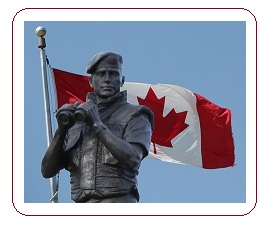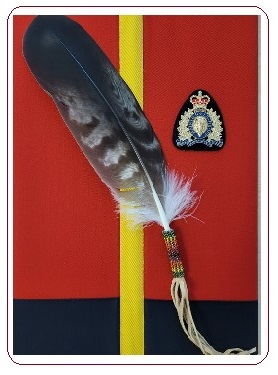True and Fascinating Canadian History
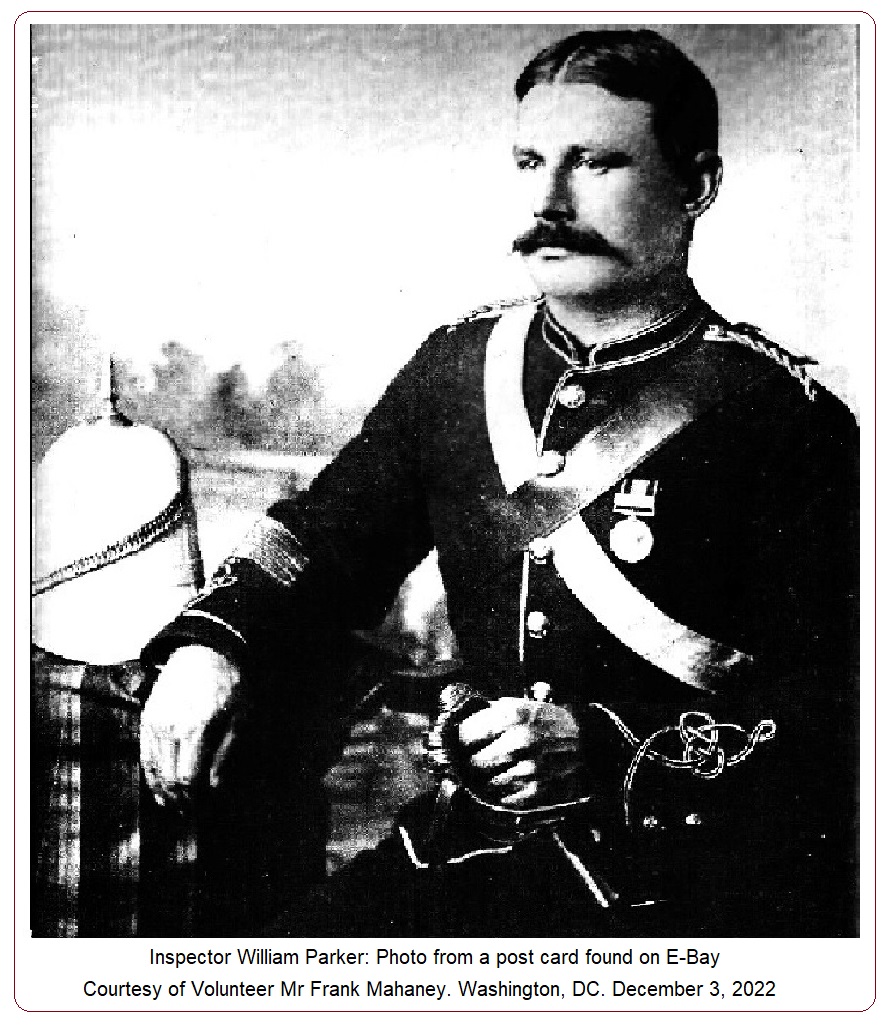
Vet of the Month: January, 2023
NWMP O.132, Inspector William Parker
by J. J. Healy,
RCMP Vets Ottawa, ON
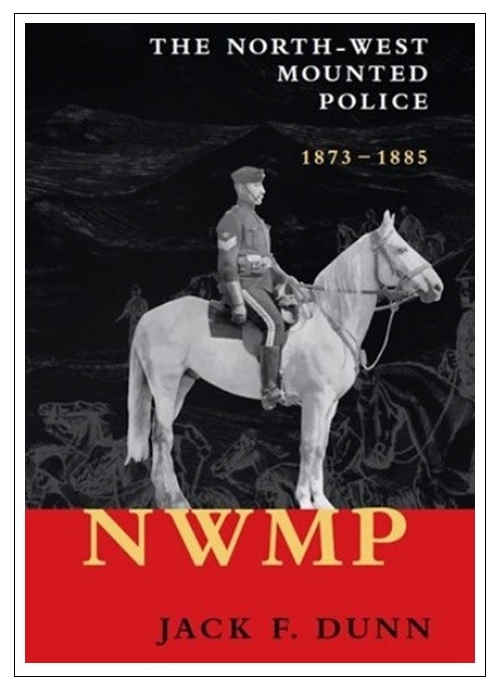
At a very early age, William Parker fostered a solid reputation built on fierce determination and grit, hard work, reliability and loyalty. He was born in New Romney, Kent, England on August 15th, 1853. He grew up with high morals in a religious home, both his father and his grandfather were ordained Anglican priests. In 1871, at eighteen years of age, he emigrated to Canada where he worked sporadically in southern Ontario as a farm labourer. He developed close friends within the farming community and he remained loyal to these people all of his life.
Parker realized that farming imposed limitations on travel. "He yearned for adventure so he joined the North-West Mounted Police (NWMP) as a Sub Constable in London, Ontario on April 4th, 1874. He was given Regimental Number o205. Later it was changed to Regimental Number 252, and once again to Regimental Number 28. William Parker would go on to devote most of his active life to the Force – a career in policing which spanned over thirty eight years. He was one of the Originals on the March West, he investigated crime across the north west, he captured suspects under dangerous circumstances, he lived for years and years among the Indiginous people, and he saw their plight: hunger, starvation and death.
By the 1870's, the Canadian west was opening up, and William Parker soon found himself, perhaps somewhat unexpectedly, in the midst of the famous March West. The March West took William Parker and about 320 other NWMP across the Canadian prairies beginning in early July, 1874. While the trek westward might have been a once in a lifetime experience, most times the men were nearly defeated due to a lack of food and water, and unpleasant living conditions including an over abundance of pests such as flies, mosquitoes, and lice. Parker would have experienced all these unpleasantries, but he persevered. The March West has often been described as a major endurance test for the NWMP and on more than one occasion it nearly failed had it not been for men such as William Parker and his chums with unlimited stamina, and no shortage of courage and bravery.
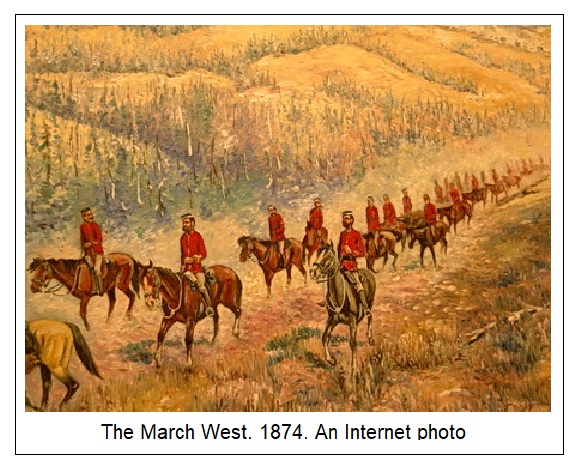
Along the March West, William Parker witnessed one calamity after another – wind storms, thunderstorms as well as unbearable heat during the day and bitter cold at night. Occasionall\y, there were a few humorous incidents along the March West, and William Parker was mentioned in one particular incident. Only four days after the March West began in July, 1874, there was an unusual infestation of locusts. In his celebrated book entitled, "The North-West Mounted Police 1873 - 1885" Canadian author Jack F. Dunn wrote, "Locusts even ate William Parker's boots. The Mountie was chasing an escaped prisoner and took off his boots to run faster. Several days later, when he went to retrieve his boots, he found only shreds of leather remaining." (Dunn: 58). No mention is made by Jack Dunn about whether or not William Parker was issued new footwear, but his inner determination would not allow this incident to be a setback.
Parker fell sick with typhoid after the March West reached Roche Percee so he returned to Fort Dufferin but he nearly died. After his recovery, Parker was transferred to Swan River, however, Commissioner French was not pleased with the building progress of Swan River Barracks, so Parker returned once again to Fort Dufferin.

On March 15th, 1875, while at Dufferin, Parker was promoted from Sub Constable to Acting Constable, but he was nearly reduced in rank after he was changed in Service Court for two minor infractions. Afterwards, his mentor, Sergeant-Major A. H. Griesbach arranged for Parker to be transferred to Winnipeg where he helped out with recruiting, but soon afterwards, Parker was transferred again to Swan River where he remained for a year.
In 1876, Commissioner George French resigned, and he was soon replaced by Colonel James F. Macleod. Commissioner Macleod was popular with the Indiginous people, and due to hostilities along the US border, Macleod decided to transfer the majority of the NWMP, including William Parker from Swan River to Fort Carleton and to Fort Pitt. Willliam Parker witnessed the signing of Treaty Number 6. It was a time of great excitement in the life of William Parker as it was the first time that he saw Indiginous people on the prairies, and he was also promoted to Sergeant during a brief stopover at Battleford. Soon afterwards, he arrived at Fort Macleod. Parker and a few other NWMP built a log cabin upstream near the banks of the Oldman River. Three months later, he witnessed the signing of Treaty Number 7.
By 1877, William Parker had served in the NWMP for four years. He decided to travel to England as he had not seen his parents in over seven years. Afterwards, he recalled that it was a great reunion, and it proved to be the only occasion that he visited England while he was in the Force.
After Parker returned to Canada, he was posted to Shoal Lake, 150 miles northwest of Winnipeg, and in May, 1879, he was posted to Fort Qu'Appelle. He faced a sad situation – the disappearance of the buffalo led to hunger, starvation among the Indiginous people and to death. In 1880, he was transferred to Battleford and he remained in Battleford until 1882. In August, 1882, he married Mary Margaret Calder, but soon after, he was transferred to Fort Saskatchewan. Over the years, the couple had three children.
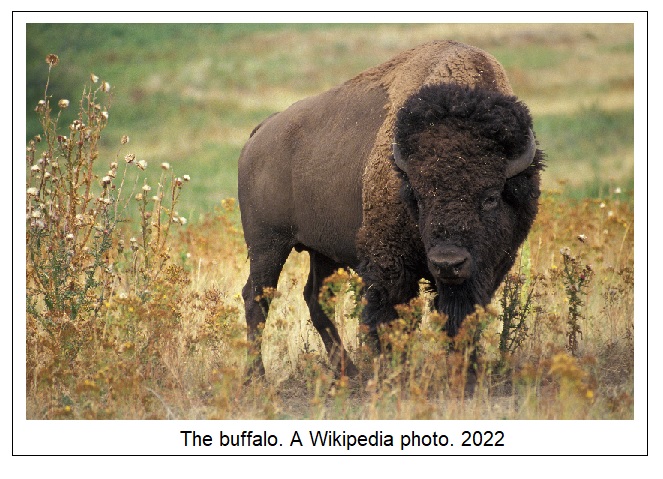
In 1885, he saw action against Big Bear as a member of Steele's Scouts in the Northwest Rebellion, having arrived from Fort Saskatchewan where he was then posted. After his discharge from Steele Scouts, he remained in Calgary for a short time, before he was transferred again to Regina and again to Battleford. In 1885, he was posted to Prince Albert. In 1900, he was granted a Leave of Absence at which time he joined the Lord Stratcona Horse and he served in the Boer War. He enlisted as a Lieutenant, but he was promoted to Captain while he was in South Africa. After returning to Canada, William Parker was promoted to Sergeant Major and one year larter to Inspector. He was posted once again to Battleford.
In June 1905, Parker was designated the Officer in Charge and the Magistrate of southern Saskatchewan and southern Alberta with his Headquarters in Medicine Hat. He retired in 1912. A few years later, Willliam Parker went on to serve in World War I.
Inspector William Parker led a very colourful, demanding and dangerous life with the NWMP and he served wherever he was asked to go mainly throughout early Manitoba, Saskatchewan and Alberta. He fought in the Northwest Rebellion, the South Africa War, and in WWI. He dedicated nearly his whole adult life to the Force, and to Canada. William Parker was one of the very early historians of the Force, and it is to his credit that we have his very detailed notes which he left behind. Today William Parker's diaries provide readers with an excellent glimpse into early Canada, its growth especially in the west and his own role as a senior NWMP Officer. William Parker can surely be counted among other great Canadians.
After his retirement, William Parker ran a real estate and insurance business in Medicine Hat until 1938. He wrote his memoirs between 1942-1944. William Parker and his wife both died in Medicine Hat, AB. Mrs Parker died first in 1944, and William Parker died at the age of 91 on May 16, 1945. They were buried in the Hillside Cemetery."
Parker Avenue, Medicine Hat, Alberta was named after O.132 Inspector William Parker, NWMP & RNWMP, and in 2008, Parker Court, off Telegraph Road, in a new sub-division of Battleford West was also named after Inspector William Parker.

Hillside Cemetery. Medicine Hat, AB.
Dempsey, Hugh A. (Ed). (1973). William Parker. Mounted Policeman. Hurtig. Edmonton, AB.
Special Note: In this short piece, the life and times of William Parker were summarized from the introduction of the book about William Parker pps vii-xviii edited by Hugh A. Dempsey.
Dunn, Jack F. (2017). The North-West Mounted Police 1873 - 1885. Jack E. Dunn Publishers.


